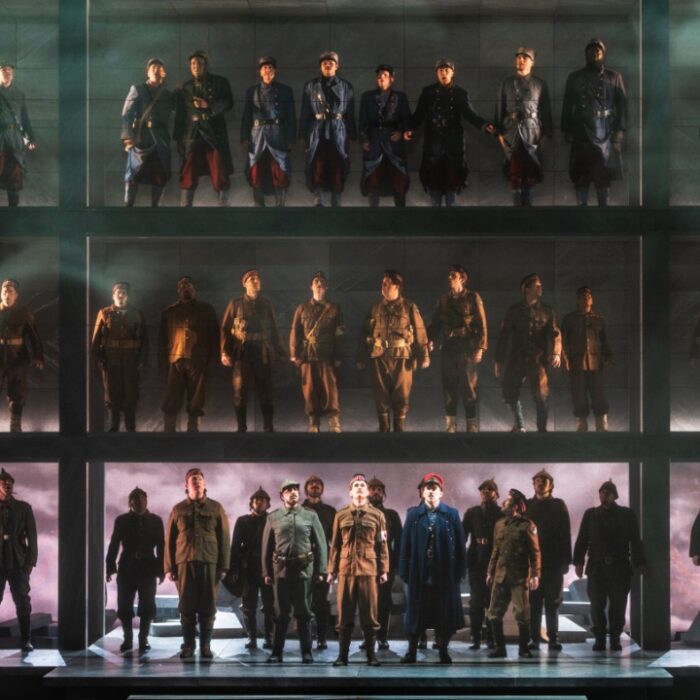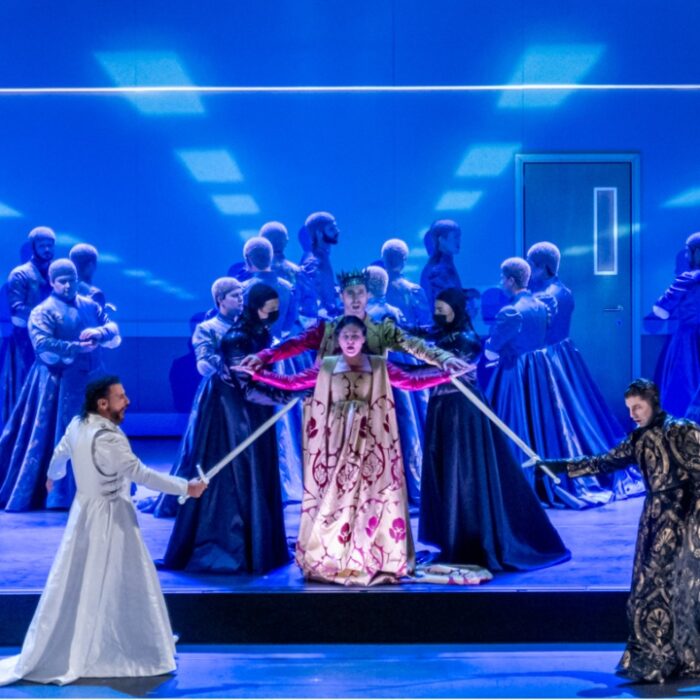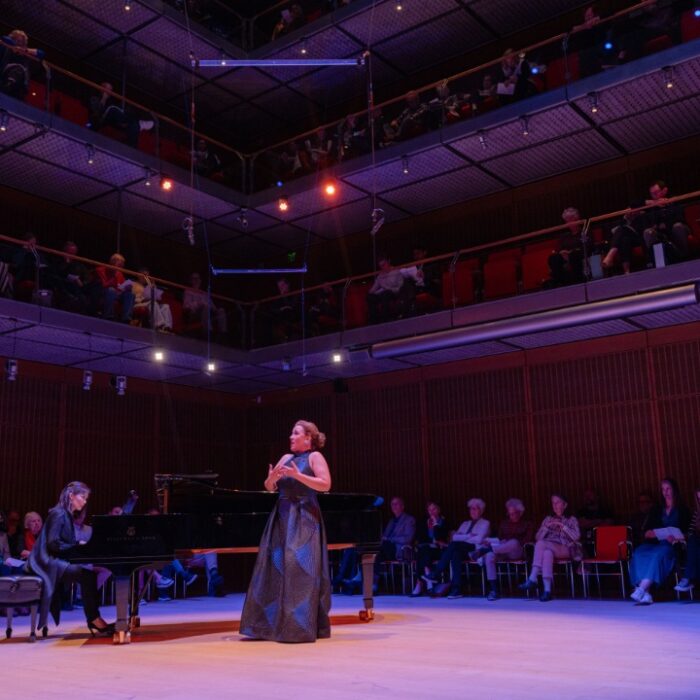
Bergen Festival 2024 Review: Edvard Grieg’s ‘Peer Gynt’
The Norwegian Bergen Festival Opens Its 71st Season With This Classic Music Theater Work
By Zenaida des Aubris(Photo: Matthias Thor Brødreskift)
Just as “Hamlet” belongs to the English literary legacy or Goethe’s “Faust” belongs to the German soul, so Henrik Ibsen’s “Peer Gynt” belongs to the Norwegian culture. Exactly 150 years ago, Henrik Ibsen asked the then 31-year-old composer Edvard Grieg to write a suitable musical setting for his dramatic poem in five acts. The premiere took place in Oslo in 1876 and it can certainly be said that Grieg’s musical accompaniment contributed significantly to the popularity and lasting success of “Peer Gynt.” Grieg later compiled two concert suites based on the incidental music, which have been a staple of concert programs ever since.
Ibsen began work on “Peer Gynt” in 1867, while he was living in exile in Italy, and it was the result of his own artistic impulses and his involvement with Norwegian culture and mythology. The plot is based on Norwegian folklore and is an early work, a poem in verse form. Ibsen wrote it to be read, not necessarily staged. It runs on and on – through Peer’s life from youth to old age. The stories are dreamlike, sometimes surreal and fantastical, such as his struggle with a bear in the mountains, delivered by Peer in long monologues, supported by some minor roles, counterpointed to drive the plot forward. Then, in a surprising twist in the second part, Peer surprises the audience with philosophical discussions about the follies of European colonialism. There are scenes of tenderness, a bit of vaudeville, sudden bursts of domestic realism, then bursts of psychedelic fantasy, a forerunner of what we would call magical realism today. The piece has many layers, which is part of its charm – as if we were inside Peer’s head and privy to his stream of consciousness. The result is that all these stylistic inconsistencies make it inherently difficult to stage. Grieg is reported to have said during composition “It’s a terribly unwieldy theme.”
The story begins in a small Norwegian village where Peer, a young man full of imagination and ambition, lives in a mixture of exuberance and self-delusion. His adventures take him to exotic lands and through fantastical experiences, from an encounter with the Troll King to economic speculation abroad involving the slave trade. Peer’s restless search for wealth and fame reveals his deep inner emptiness and his inability to build genuine relationships. Ibsen portrays Peer as an anti-hero – a man who is constantly running away from himself and the consequences of his actions. His inability to face the realities of life makes him a tragic figure.
The women in Peer’s life, especially his self-sacrificing mother Åse and his girlfriend Solveig, stand in sharp contrast to his restlessness. Both embody loyalty, love and redemption. Solveig’s unconditional love and patience show a glimmer of hope in Peer’s otherwise chaotic and aimless life. Ibsen’s “Peer Gynt” is a profound exploration of human weaknesses and longings, characterized by its poetic language and rich symbolism. It is a bitter yet beautiful journey into the abysses of the human soul that is thought-provoking and moving.
For the opening of this year’s festival in Bergen, Johannes Holmen Dahl has taken on this masterpiece. Nia Damerell uses the spacious, dark, empty stage of the Grieghallen and fills it with just two props in the course of the play: a storm of what looks like soap foam and, in the second part, a real small airplane, which symbolizes Peer’s adventures, flies in with him from the rafters and flies out again, symbolizing his financial ascent but also his descent. The knee-high and wet foam through which all the actors move is also symbolic of the impermanence, in the truest sense of the word foaminess, of Peer’s personality. Director Johannes Holmen Dahl lets the leading actor, Herbert Nordrum, live out his slender, lanky physicality to the full. This Peer is nothing if not agile, expressive, implausible in his views, fantasies and plans – and yet lovable. His mother, Åse, played with a modest and sad selflessness by Ågot Sendstad, resignedly sticks by him until her own quiet death. His soulmate Solveig, played with restraint and devotion by Frøy Hovland Holtbakk, uses her beautiful, clear and lyrical soprano, especially in the famous “Solveig’s Song.” She is the antithesis to Peer’s restlessness and ultimately – in good Protestant tradition – enables his spiritual redemption.
Edvard Grieg composed 26 musical numbers for “Peer Gynt.” Most of them are short musical accompaniments for the stage action. Thomas Søndergaard is the conductor who leads the excellently playing Bergen Philharmonic Orchestra subtly and harmoniously. Ragnhild Hemsing has the extensive solo part on the typical Norwegian Hardanger violin – with eight strings instead of the usual four – and is dramaturgically integrated as a dreamily wandering soloist on stage. Several choirs, including the Bergen Philharmonic Choir, the Edvard Grieg Vocal Ensemble and the Girls’ and Boys’ Choir, take part in the grand choral finale, emphasizing the solemnity of the music, being sung from the dark depths of the large stage.
The audience at the sold-out Grieghallen enthusiastically celebrated the performers, and the entire ensemble, giving them a well-deserved standing ovation. The Bergen Festival runs from May 22 to June 5, 2024 and features over 150 performances in the genres of drama, classical music, recitals, dance, jazz and art exhibits all over the city, including many performances free to the public.



